Marvel Movies and the Multiverse: Different Worlds, Same People
The Multiverse Theory suggests that every time someone makes a decision, there exists somewhere in the potentially infinite space-time continuum a world where that person made a different decision. Following this train of thought to its natural conclusion, the Multiverse contains an infinite number of worlds, some of which may appear identical to the reality you are currently experiencing and some of which are wildly different.
The Multiverse offers bountiful potential for storytellers. Once it is established as possible, the natural progression is for characters to travel from one universe to another. Travelers may gain a new appreciation for their lives and worlds after seeing how different the world could have been. They may even learn something about themselves, especially if they meet alternate versions of themselves. Travelers can even improve the worlds they visit, even if they are only armed with the knowledge that “things could be different.”
The fantastic world of superheroes easily lends itself to this kind of Multiverse stories. Superheroes and supervillains can meet alternate versions of themselves – a seemingly small change in their backstories can radically change the kind of person they are. They may fight alongside their doppelgangers or even against them.

The Marvel Cinematic Universe is currently building a Multiverse through movies and TV shows featuring superheroes and supervillains exploring alternate versions of their world. The recent movie Everything Everywhere All at Once and the ongoing animated TV show Rick and Morty also revolve around the Multiverse. The animated movie Spider-Man: Into the Spider-Verse will soon be getting a sequel called Spider-Man: Across the Spider-Verse. There is plenty of material to compare and contrast.
Rick and Jobu: Pros and Cons of Nihilism
Before focusing on Marvel, it is worth acknowledging some extreme examples of Multiverse stories: the animated TV show Rick and Morty and the art film Everything Everywhere All at Once. These stories take the science fiction premise of the Multiverse to an absurdist extreme for comedy, and the main characters have notable similarities and differences.
A basic tenet of the Multiverse Theory is that anything that can happen will happen somewhere. Anything that could have happened did happen somewhere. A Multiverse traveler can find virtually anything imaginable. And (assuming each universe came about through random chance rather than intentional design) it all exists equally. For some characters, this quickly leads to a nihilistic conclusion: in the grand scheme, nothing matters, no one matters, and no event happens on purpose because every alternative is happening simultaneously.
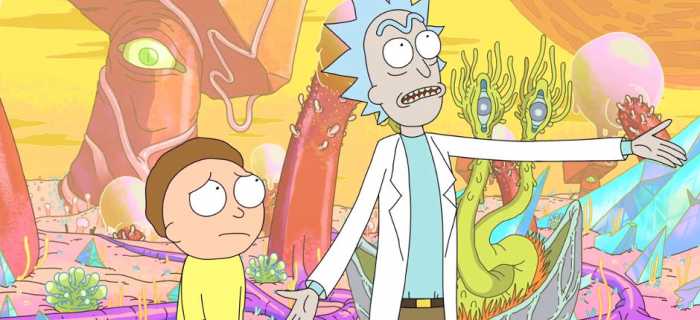
The cartoon Rick and Morty focuses on a genius scientist named Rick Sanchez who has come to this conclusion after decades of adventuring across space and the multiverse. That nihilistic worldview contrasts with Rick’s narcissistic personality, an unfortunate side effect of his unique intellect and ego. Rick seems to believe that he is the only significant person in the multiverse, and the only things that matter are the things he wants to happen.
This dissonant combination of philosophies makes Rick a surprisingly heroic protagonist, but only when he is helping his family and friends. When Rick finds himself caring about another person, Rick wants that person to survive and succeed; therefore, according to his worldview, their survival and success are included in the only things in the Multiverse that matter.
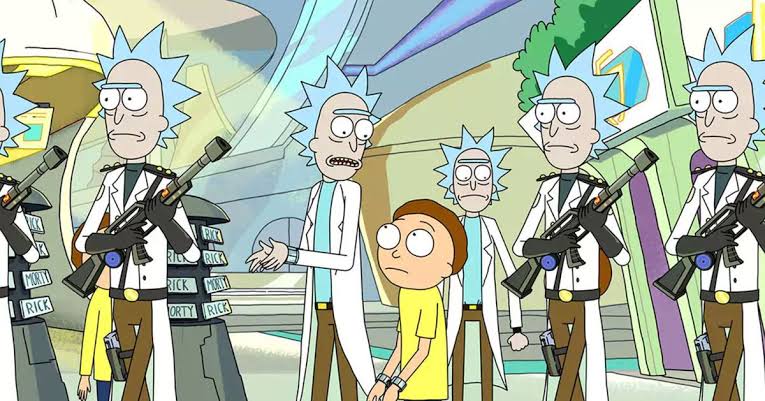
Season 5 of Rick and Morty revealed one of the things Rick did for the sake of his loved ones: a destructive rampage across the Multiverse. Some time ago, one of Rick’s doppelgangers from another universe was responsible for Rick’s wife and daughter dying. Rick spent years hunting that doppelganger, killing countless other alternate versions of himself along the way.
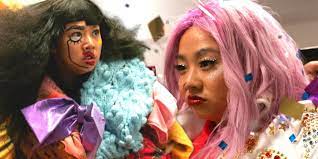
Everything Everywhere All at Once features another character with a nihilistic perspective on the Multiverse. Jobu Tupaki has mastered the ability to project her mind into versions of herself in alternate universes, and she has done it so much, she has lost the ability to care about anything. Her nihilism is so extreme, she wishes to destroy herself, but only after finding a doppelganger of her mother who shares her worldview and wants to join her in oblivion.
Jobu’s motivations may be similar to Rick’s: in a strange way, she cares about her family, despite being completely apathetic about everything else. But wanting to find a specific version of her mother just to invite her into a pact of self-destruction is hard for audiences to agree with. Rick’s motivations are more understandable.
Jobu also leaves a path of destruction similar to Rick’s on her quest to find a version of her mother she can relate to. However, Jobu destroys various other things and ruthlessly kills everyone in her path simply because she doesn’t believe any of it matters. She is disappointed and bored by the utter lack of challenging obstacles she finds throughout the Multiverse.
Rick’s nihilistic apathy is not quite that destructive; he is much more efficient and focused when pursuing his narcissistic goals. Like most of Rick’s antagonists, the alternate Ricks are generally understood to be evil, simply because they have seemingly abandoned their families and friends, unlike Protagonist Rick. Thus, audiences are more likely to accept Rick’s destructive vengeance quest as anti-heroism.
Kingpin, Scarlet Witch, and Electro: How to Make the Multiverse Work for You
The villains of Spider-Man: Into the Spider-Verse, Doctor Strange and the Multiverse of Madness, and Spider-Man: No Way Home have similar motivations to Rick and Jobu, but they are not nihilistic or apathetic. Rather, they see the infinite possibilities of the Multiverse as a way to get something they think is missing from their lives. In the first two cases, what they’re missing is their family.
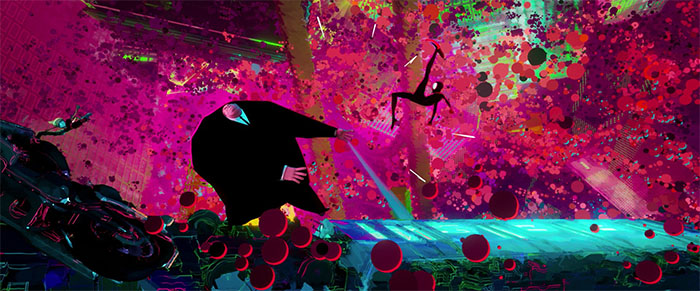
In Into the Spider-Verse, Wilson Fisk’s wife and son have died. Fisk plans to use a particle accelerator to access the Multiverse, find alternate versions of his family, and bring them to his universe to live with him. Fisk does not consider the possibility that these people might not want to live with him; he also ignores the possibility of the accelerator causing devastating damage to New York City. Like most villains, he is too obsessed with his own goals to care about anyone else’s interests.
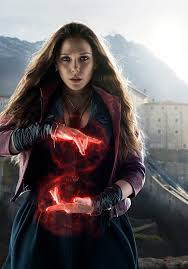
Similarly, in the Marvel Cinematic Universe, Wanda Maximoff has lost her two sons, as well as her husband. In Doctor Strange and the Multiverse of Madness, she discovers there are alternate universes where her children are alive, and she also learns a certain teenage girl has the power to travel between alternate universes. She wishes to find this girl and take the power for herself, and she doesn’t care that the girl would die in the process. She is also okay with killing anyone who tries to stop her from finding this girl and ultimately getting her children back.
The movie Spider-Man: No Way Home features a few super-villains from other universes traveling to the Marvel Cinematic Universe. These villains learn that if they are sent back to their home universes, they may be fated to die soon. Although Spider-Man tries to assure them he can help prevent this from happening, they ultimately decide to try to stay in the MCU and destroy anything and anyone who tries to send them away.
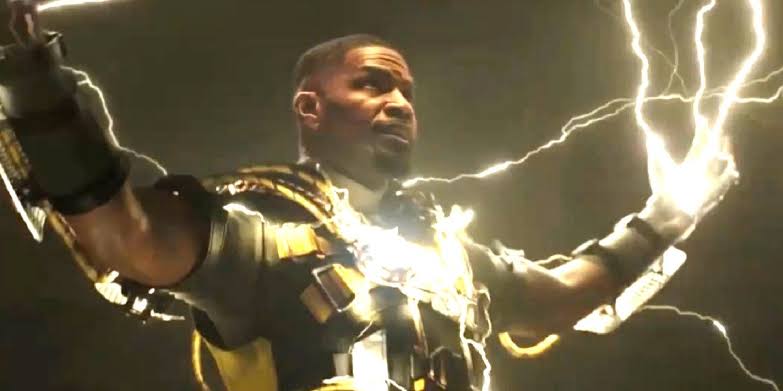
The villain Electro embodies the perspective of the whole group. He sees this new universe as a giant buffet of energy to consume, which is very preferable to returning to his old universe where he may be on a path of destruction. His group of villains staying in a universe where they don’t belong would be bad for reality as a whole, but they do not seem to care.
Kingpin, the Scarlet Witch, and Electro have a more optimistic perspective on the Multiverse than Rick Sanchez or Jobu. They don’t dismiss everything as meaningless simply because there is an infinite number of duplicates of everything. Rather, they believe an infinite number of doppelgangers means a potentially infinite number of second chances to fix their problems and find new things they want.
Unfortunately, these villains are just as self-centered as Jobu. Like Jobu, they believe that as long as they get what they want, everyone else can lose their families or their lives. And they are even worse than Rick. Whenever Rick wishes to live with a new family, for example, he chooses one that has lost contact with their version of Rick. He does not try to steal family members away from his doppelgangers the way the Scarlet Witch does.
He Who Remains and Infinity Ultron: “I’m Better than Everyone, Even Myself”
In their Phase Four, the Marvel Cinematic Universe released two TV shows focused on the Multiverse: Loki and What If. The secret antagonist at the end of Loki is called He Who Remains. He and many of his doppelgangers discovered the existence of the Multiverse and promptly went to war with each other; each of them believed he was the superior version. He Who Remains won this war by finding a way to erase alternate timelines, leaving only his own timeline. He then formed a small army of minions to continue “pruning” branches of what he calls the Sacred Timeline; anyone who makes a decision that would result in a divergent universe is condemned to be erased from existence.
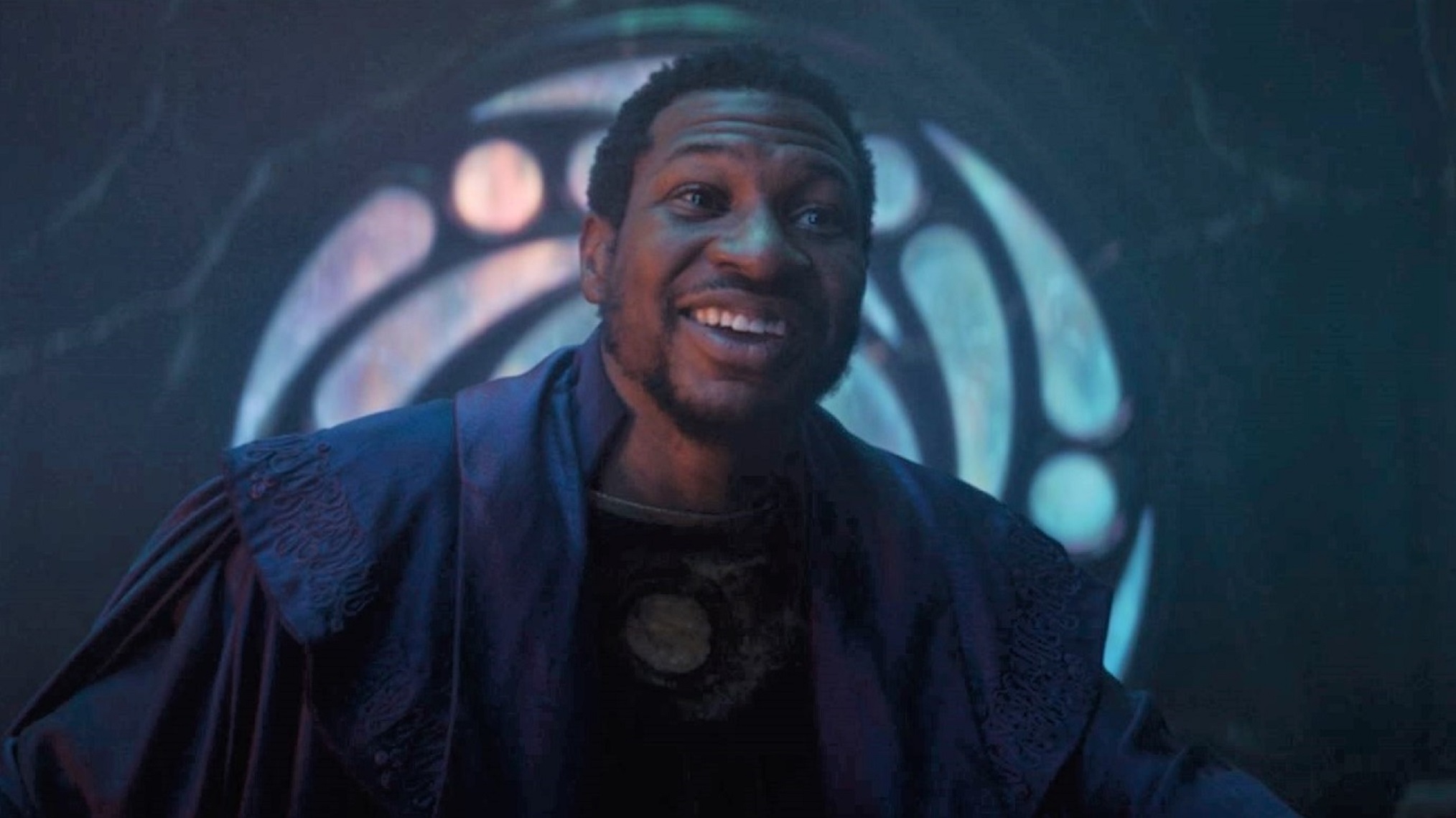
From the perspective of He Who Remains, numerous alternate realities freely existing would inevitably lead to chaos and war. To prevent the war starting up again, one timeline needed to be given priority, and he chose his own. He acknowledges that, from the perspective of most people, he is a villain who outlaws free will. He thinks of himself as a necessary evil. Like Rick, Jobu, Kingpin, and the Scarlet Witch, He Who Remains is motivated by a self-centered obsession with having his way.
Marvel’s What If? explores stories taking place in alternate versions of the Marvel Cinematic Universe. In one episode, an artificial intelligence called Ultron eradicated nearly all organic life on Earth and took over the planet with a robot army. A couple years later, Ultron gathered the six Infinity Stones, the most powerful items in his universe, and used them to spread his destructive influence throughout the galaxy and beyond. Now called Infinity Ultron, he soon discovered the existence of the Multiverse and continued his conquest across other universes.
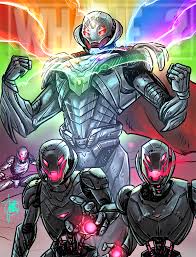
Like most of the villainous characters on this list, Infinity Ultron is motivated by his belief that he is superior to everyone he encounters, even people from other universes. He is not shown fighting alternate versions of himself, but considering Ultron’s history of discarding old bodies as soon as a new and improved model is ready, it is likely he would react to meeting himself the same way He Who Remains did: fighting for supremacy.
Infinity Ultron and He Who Remains have broader goals than the other villainous characters and even more dramatic methods of pursuing them. They don’t simply destroy obstacles in the way of finding the “perfect” versions of their worlds. They want to destroy absolutely everything that doesn’t meet their personal standards. Both He Who Remains and Infinity Ultron call the expected result “peace.”
Loki(s) and Spider-People: On Power and Responsibility
Anywhere in the Multiverse where super-villains become a threat, a hero will be called to rise up against them. Sometimes, the threat is so great that more than one hero is necessary. In stories about the Multiverse, a team of heroes can be made up of alternate versions of the same hero. Spider-Man has a long history of doing this in the comics, and there are two recent Spider-Man movies with this premise.
When Kingpin first uses his particle accelerator in Spider-Man: Into the Spider-Verse, he accidentally pulls multiple versions of Spider-Man from across the Multiverse into his universe. They all meet the local Spider-Man, Miles Morales, who is very new to his superpowers and could benefit from his doppelgangers’ training and assistance.
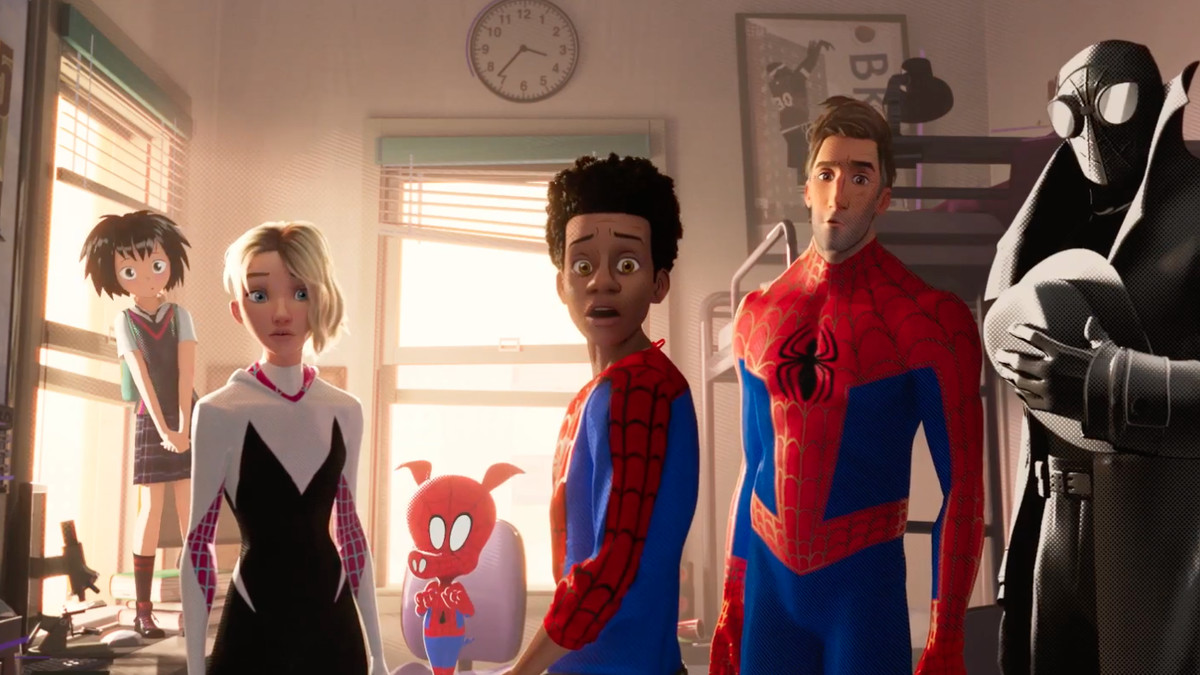
Miles’ primary trainer, Peter B. Parker, fills the archetype of the older, grumpier Mentor Figure. His life isn’t much different from the “classic” Spider-Man audiences would be familiar with, but he has been living that life for a while. His relationship with his wife has fallen apart, and his elderly aunt passed away; with this abundance of experience, Peter B. has developed a lethargic personality. Working with Miles reinvigorates Peter’s passion for life and superhero work.
This sort of mentor-protege relationship is very easy to set up in a Multiverse story. Audiences don’t necessarily need to see the backstory that made the mentor so grumpy. They can just be told the mentor is a more experienced version of the main character.
In Spider-Man: No Way Home, one of the villains – the Green Goblin – kills Spider-Man’s Aunt May. In his time of grieving, he meets two alternate versions of himself from across the Multiverse. They comfort him and encourage him to continue trying to help the villains. They remind him of the moral ideal he fights for as Spider-Man: with great power comes great responsibility.
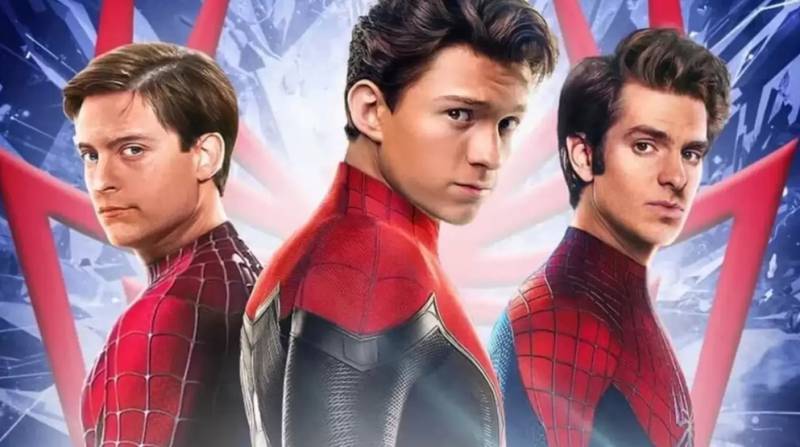
In return, the MCU’s Spider-Man helps the other Spider-Men to accomplish more than they could on their own. With his past experience on superhero teams, MCU Spider-Man has faced more significant threats than the other two, so he can guide them, despite being younger.
However, MCU Spider-Man still needs guidance himself. At the end of the movie’s climactic battle, Spider-Man wants to kill the Green Goblin out of revenge for his aunt’s murder. One of the other Spider-Men stops him. This is the Spider-Man who has experience with how terrible the Goblin is, as well as experience fighting the temptation of revenge. He helps MCU Spider-Man avoid crossing that line and stay a good and responsible hero.
If a hero is not available to rise up against a villain, an anti-hero or even a villain will do if her goals are in conflict with the arch-villain’s goals. Audiences are encouraged to root for the character whose goals will benefit the most people. In the Loki show, that role is filled by main characters Loki and Sylvie.
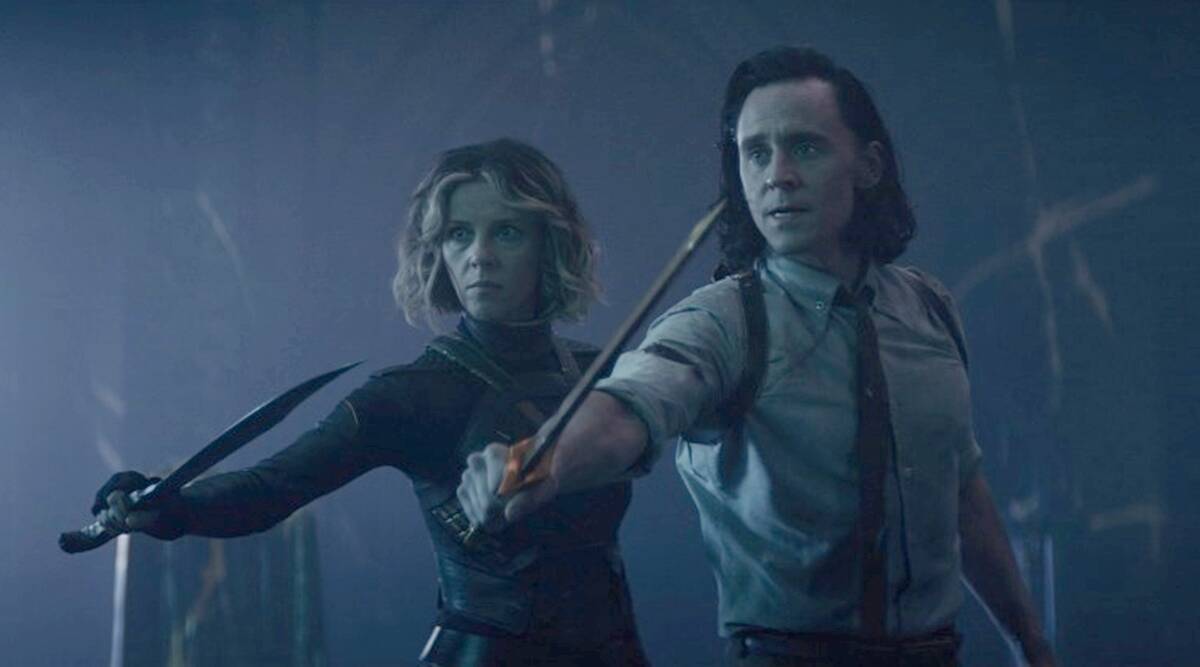
Loki and Sylvie are both variants of Loki, a recurring antagonist of the MCU. Loki is separated from the main timeline after the Avengers stop him from conquering Earth. He then meets Sylvie, a version of Loki who was born female and spent most of her life being chased by He Who Remains’ forces. Sylvie feels personally affronted by He Who Remains’ attempts to prune her from existence, and she believes he is wrong to erase other timelines, as well. She wants to kill him to prevent him from doing it anymore.
He Who Remains explains his motivations to Loki and Sylvie: he believes his rule is better than the chaos of a free Multiverse. He warns them that if he dies, more dangerous versions of him will be set free to wreak havoc. Sylvie suspects he is lying, and even if he isn’t, killing him is worth it to her. Loki, on the other hand, believes removing He Who Remains from the metaphorical throne is too risky.
The audience is faced with an interesting moral dilemma between freedom and safety. Sylvie believes He Who Remains’ rule is too restricting on people’s free will. He Who Remains has seen and experienced the worst possible results of free will. Both of their motives are partly selfish but also beneficial for “the greater good.” However, He Who Remains wants to destroy the majority of the Multiverse so that the people he spares can live in “peace.” Sylvie’s greater good includes the entire Multiverse’s free will.
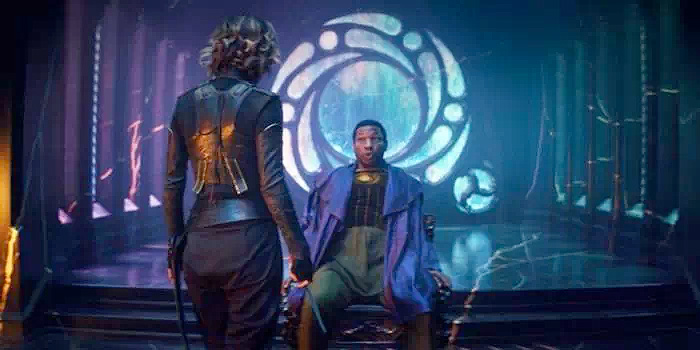
The “peace” He Who Remains is pursuing is relative. There is still plenty of conflict within the so-called Sacred Timeline, but from He Who Remains’ perspective, that is better than different universes going to war with each other. He Who Remains has the ability to hold back Multiversal war and chaos, and he decides it is his responsibility to do so. Sylvie finds an opportunity to stop him from controlling the timeline, and she decides it is her responsibility to do it.
In addition to responsibility, Sylvie wants revenge for what He Who Remains and his army has done to her. In No Way Home, Spider-Man must choose between getting revenge and doing the responsible thing. Loki trying to stop Sylvie mirrors alternate universe Spider-Man stopping MCU Spider-Man from killing the Green Goblin.
The Question of Scale
Introducing the Multiverse can add an epic scale to a story. Powerful resources and allies can come from other universes, but unexpected and exotic threats can appear as well. Entire universes can hang in the balance when a villain wants to protect his own reality and reject all alternatives. Some actions that affect alternate universes can spiral out of control to endanger all of reality.
However, not every superhero story featuring the Multiverse has Multiverse-level stakes. Most of Spider-Man: No Way Home focuses on helping a group of villains with the problems that doom them to destruction. This plotline could have happened if all the characters were from the same universe. The same could be said of Spider-Man: Into the Spider-Verse and most episodes of Rick and Morty.
This is not necessarily detrimental to the quality of the movies, however. Superhero stories tend to focus on individual characters. Even when the heroes are saving the whole world, they are also dealing with their personal struggles. The stakes are still raised because these heroes have a lot of power and therefore a great potential to influence the world, so the personal decisions they make can have far-reaching consequences.
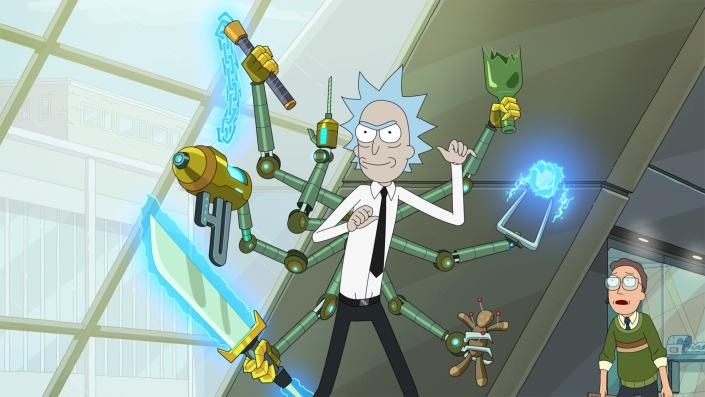
This highlights a major difference between heroes and villains. Infinity Ultron and Rick Sanchez, for example, have similar levels of power and perspective. They can destroy, rescue, or forever change entire universes with hardly any effort, so individual lives do not necessarily matter to them. When Rick chooses to care about people, then, he is making a notably heroic choice. He could easily justify nihilistic apathy, just as Infinity Ultron does. The same principle applies to Jobu, the Scarlet Witch, He Who Remains, and even Kingpin with his particle accelerator.
Villains teach the audience what not to do. As Jobu and her doppelgangers ultimately learn, things like family and kindness still matter, even after great tragedies. Kingpin, the Scarlet Witch, and Electro learn that only looking out for ourselves leads to peril and isolation. Infinity Ultron and He Who Remains demonstrate how villainous it is to restrict the freedom of others in the interest of peace.
While we do not have the power to shatter the fabric of the Multiverse, we can still decide to use the power we have responsibly, like Spider-Man. Just as we are upset when villains apathetically dismiss people, we should put effort into caring about people. Even if the Multiverse is real, we can find purpose in our lives.
What do you think? Leave a comment.











It’s fun in principle to allow previously distinct fictional universes to cross over, but what matters is what actually happens when they do. It’s the kind of idea writers like to play with without having any real idea what to do with it. I would love to see a universe-cross-over story that really works, but off the top of my head I’m struggling to think of one.
I recommend Spider-Man: Across the Spider-Verse. I’d say that movie takes the multiverse concept to some very good conclusions, such as mixing different animation styles to visually show different universes intersecting and exploring ideas of destiny through the lens of Spider-Man, Spider-Gwen, and their relationship. It goes even deeper than the first movie in the series.
I wish I’d had the chance to include that movie in my article, but the two were released at about the same time.
10/10 article! For true genuine creativity around multiple universes, take pretty much any episode of Rick and Morty!
Everything Everywhere All at Once was a crazy film that was also a lot of fun. But at its core it was a very straightforward story with well-drawn relationships between the characters, so it worked.
Everything, Everywhere all at Once was so much better at portraying the insanity of the multiverse idea than Dr. Strange which was a mess … and I’m a big MCU fan.
I do not think Dr Strange in The Multiverse of Madness handled alternate realities ‘superbly’ on any level. By all accounts: Everything, Everywhere, At Once both understood and communicated such an idea far more effectively. It’s one of the worst films in the MCU, not just just phase 4, which is the worst phase of the MCU(so far). Sam Raimi is literally the only good thing about it.
Loved Strange two and thought Raimi did an excellent job overall, really wanted to like EEAaO also but funnily enough concluded ‘it’ was the confused mess – whereas I could ‘suspend my disbelief’ with Strange’s antics (although some of the characterisation was an endurance test, that’s also coming from a massive MCU fan!), I really couldn’t with EEAaO because there was no ‘hook’ – even though it has the wonderful and eternally watchable Michelle Yeoh as lead? horses, courses I suppose!
I thought the “hook” was Evelyn’s relationship with her daughter, upon which the fate of all universes (as well as the audience’s emotional engagement) depends? Either I’ve remembered it wrong, or maybe it just didn’t ‘hook’ you?
So much better handling of the concept.
Great film.
Think maybe you was distracted by the lack of full colour laser beam fights.
IMO, the best films in general are those with captivating/interesting characters we care about, conflict, drama, intelligent dialogue, and an engaging story. When studios make these traits a priority over CGI fireworks, and not the other way around… They make blockbusters. (a great example is the original Justice League, vs ‘Zack Snyder’s Justice League’).
Both versions were utter dogshit.
The four hour version works quite well as a miniseries actually. There’s guides online as to where to break it up.
I feel that every superhero multiverse film so far has been a disaster and incredibly uncreative. Bringing back some actors from previous iterations is as lazy and cynical as can be. I’d enjoy it if they dug deeper and showed us things that never were, but could have been.
How about inviting great directotkrs to do movies – a Quentin Tarantino superman, a Christopher Nolan something.
Christopher Nolan has already done DC films.
The comics handled the multiverse well enough, Crisis on Infinite Earths etc.
I’m waiting for Superman Versus Sharknado.
This multiverse shall pass.
Multiverses were made up for fan-service. It served the desires of fans that their favourite characters have a single, canonical life-story.
When comic books started in the 1930s and 1940s, the goal was “give ’em fights, not too many big words, and be quick about it – you’ve got romance story to do next”. Writers would come and go on a title, depending on the publisher’s timelines, and each brought their own ideas to the subject. Then, as those comic characters remained popular and built up a committed following, readers going through old issues started to notice that nothing really connected – the same character had multiple origin stories, the same event played out differently in different versions of the telling. In a way, this is how any mythology works (the details change, the core remains), I suppose, but comic-book fans wanted definitive answers, not an introduction to existence of folklore studies.
So, the idea of the “multiverse” was born sometime in the 1960s, although not named as such. It wasn’t a mistake that Clark Kent worked for two editors simultaneously at the Daily Planet (or was it the “Daily Star”?) – what you were actually seeing was two alternate lives of Kal-El, played out in two different universes, and how clever of you to spot the clues we’d sprinkled through our older stories (ahem.)…
It all got batshit-crazy (if you pardon the pun) when the publishers decided that the walls between these universes were porous, and characters could flit between them. This allowed publishers to play with high-stakes (killing their title character), but still be able to clean up the apartment, as it were, before the next issue (ah, yes, she only died in Universe #2037; didn’t you notice the Statue of Liberty was blue?).
Personally, I find the whole thing of “canon” and the idea that every story needs to be placed in an identified timeline, rather than being experienced as a narrative in and of itself, a bit silly, but there are lots of fans of all kinds of genre-fiction who appear to get as much or more pleasure from such collecting and cataloguing as from the material itself. The danger is always that, as ideas wane, producers will start making material solely to appeal to those fans: meaningless stories that exist only to fill obscure gaps in “canon”. That’s how story-worlds die.
Multiverse was done first and best by Family Guy.
That Doctor Strange movie felt to me more like Marvel scraping little tiny bits of meat off the bones of their already-picked-clean property than a blueprint for success. Watching it, I just kept thinking, yeah this is over.
Nah, multiverse was a good film.
There’s no denying there is quality in the Marvel Cinematic Universe output, but all its films feel vaguely the same to the point it’s often difficult to distinguish them and remember in which one you have seen this scene or this character.
Tosh this superhero thing, not more of it.
I do think there are interesting stories to tell with superheroes, but I’m not convinced we’re going to get them from either DC or Marvel, to be honest. Their target market is likely adolescent young men who just want to see fights, and not one that’s going to be looking for a more thoughtful approach to the questions the superhero can provoke.
I agree with a lot of what you’ve said here, but I definitely disagree with this.
One of the major problems with the early DCEU was that the filmmakers thought they were providing a “more thoughtful approach” to demigods in tights punching each other by having them look grim and dour and spouting lofty dialogue while doing it.
I never saw the need to look much further than Alan Moore or Grant Morrison’s ideas.
That said: Legion is well worth watching and utterly surprised me it came from marvel writers.
Advise to filmmakers: don’t use multiverses and stunt casting to paper over the cracks in your shonky script.
I think that there is a danger of bloated and convoluted storylines with multiverse for the sake of multiverse.
Where James Gunn has had most success is in taking a peripheral and bit of joke character i.e. Peacemaker and developing him in terms of insight and humour and how he relates to a tight surrounding cast of characters.
He may be tempted to use this formula again. I certainly hope so as I thought that Peacemaker was far more engaging, entertaining and fun that all the bloated multiverse and mass of superheroes coming together fare to which we have all been subjected.
Personally I’ve lost interest in the Marvel films since the introduction of the multiverse, and preferred it when there was just one universe, one Spiderman etc. I think it’s all become bloated and needs streamlining.
I think Superhero movies have already proceeded beyond snakes in a plane territory and is currently about to speed beyond jump the shark territory.
The whole notion of Multiverse in Spiderman 3 (V2) is that the writers got lazy, couldn’t figure out how to further the plot beyond Spiderman fight bad guys…again. just a shame really.
I think it was an interesting twist on ‘Spiderman fight bad guys again’. Spiderman refuses to fight bad guys because it would be tantamount to killing them if he sends them back. Spiderman then wanting to fight bad guys and being talked out of it by Spidermen (spidermans?) who really had leaned more into the violence than him.
I think a better movie would have been Spiderman and Daredevil teaming up.
Spiders-men.
Wonder if movies will go the way of comics and do the full shark jump.
Comic crossovers already exist, for example, Superman Vs Aliens, Star Trek versus X-Men, Batman versus Predator and the publisher hero cross overs like Batman versus Spawn, and Spidey versus Superman.
But throw too much into the mix and it just becomes a gimmick.
You only need Batman. Batman Vs Trump. Batman Vs Leprechaun. Batman Vs Great British Bake Off. It’s all good.
In the 90s the comics got so convoluted with alternative timelines, dimensions, doubles, pretenders, clones and timetravellers they ended up rebooting it. Not only due to that, to be fair, but to get into the comics before the reboot was a hopeless endeavour. Why introduce those problematic themes so soon?
There are so many cool stories to tell without all this, it just isn’t necessary.
The short answer is the MCU is continually trying to raise the stakes. The Avengers saved the entire universe at the end of Phase 3; their next threat will involve more than one universe.
In the meantime, as the main timeline continues to expand, they can continue to tell those other cool stories.
During the 80s and 90s the comics model changed from paying creators work for hire (and tidbits of royalties as a token gesture to creators’ rights) just as the market changed to firm sales and collector investment. The result was that keeping character inventory alive (and maintaining ownership) became more important than ever. And it worked. As a precondition for feature filmmaking this doesn’t seem a natural fit with theatrical release. But with streaming and box set viewing it makes more sense.
You’ve hit the nail on the head. Marvel know it can’t continue indefinitely, but whilst its success continues, let the multiverses rock. Then do a complete back to basics reset for every character. And start again.
I’m a big fan of the MCU and enjoyed No Way Home but it was essentially Fan Service: The Movie.
This, along with Endgame, felt like the cinematic equivalent of a McDonalds cheese burger.
You’re not wrong.
Agreed. Thought NWH was great fun but it only works because of previous ‘quieter’ stories letting us get to know the characters. Same with Endgame. Would be a mistake to go ‘All Multiverse/All the Time’ or these’ll end up as incoherent and mind-numbing as Transformers or Justice League.
Will there ever be a Singing Superhero.
The Return of Captain Invincible (1983), starring Alan Arkin and Christopher Lee. A musical comedy about a superhero, and surely next in line for the inevitable remake/reboot/reimagining.
Multiverse is like a Vegan Barbecue. No steaks (sic).
How will anyone cope with this strange multiversal madness?
The MCU idea ran its course with End Game.
Multiverses are a Christmas treat.. to be done occasionally, The 3 Doctors.. then 4 then etc.
And Star Trek with an evil universe..where we could have the good Joker battle a bad Batman and team up with our universe Batman Joker.
I thoroughly enjoyed the last Spiderman because the film did not really take the multiverse idea seriously. Of course it is bonkers. That is the joy of it.
Indeed. Spider-Ham, anybody? I had no idea that was a pre-existing character, by the way, I thought it was just something the filmmakers put in for a laugh (the same thing applies to when I first came across DC’s Mad Hatter villain; I thought ‘what the hell is this?’).
great article! You really explained the multiverse well and used great examples
Insightful and clever article. Maybe some studio will use some of his ideas.
Marvel vs Capcom the movie. When?
What gets me is that the best of this genre (of which I can casually enjoy some) is that the best ones are standalone in their universe.
If 90s Eastenders enters the multiverse, Letitia Dean has to play Thor. Cate Blanchett as Dot.
A really interesting discussion that unpacks it in an easy to read way – great considering how messy multiverse discussions can get! I like that you bring this back to the larger concept of personal responsibility 🙂
A very interesting read! I feel like Everything Everywhere All At Once was perhaps one of the greatest media pieces out there to tackle multiverse in a heartwarming, insightful and touching way. I’m a huge MCU fan, and loved all the Spidey’s coming together for Spider-Man: Home, but in Multiverse in Madness some things could have been better.
This was a really interesting article! I really loved Everything Everywhere All At Once, the way it used a multi-verse type story was very distinct and engaging. I also think Into and Across The Spider-verse are interesting takes on this concept as well.
Marvel seems very lost in the multi-verse concept at the moment. It makes things very one-dimensional story-wise and leaves me kind of thinking that maybe the multi-verse is what is impacted Marvel’s most recent movie success.